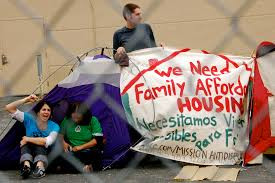
Join Host Dale Holiday in Part 2 of her conversation with Clarice Amorim-Freitas, Coordinator for the Linn-Benton Health Equity Alliance. In this segment Clarice talks about the unique obstacles that Latinos and Latinas face obtaining sexual and reproductive health care in Linn and Benton Counties. She also continues her discussion of the challenges of finding affordable housing in this region.
Clarice Amorim-Freitas is the Coordinator for the Linn-Benton Health Equity Alliance. This group has a Vision Statement that declares, “Everyone in our region should be able to be healthy. Healthy communities begin where we live, work and play. Together we are working to ensure a future in which healthy opportunities are possible for everyone in Linn and Benton Counties.”
In this segment Clarice talks about the unique obstacles that Latinos and Latinas face obtaining sexual and reproductive health care in Linn and Benton Counties. The needs assessment was done to let policy-makers in local and state government know the problems and challenges that these individuals have in accessing reproductive health care.
Clarice also continues her discussion of the challenges of finding affordable housing in this region. Housing experts say that rent in “affordable” housing should not exceed 30% of your income. But in Benton County, 4 out of 10 of all renters are paying over 50% of their income in rent. AND 8 out of 10 renters in Benton County who fall into the low or extremely low income category are paying over 50% of their income in rent.
The LBHEA gathers people from a diverse collection of backgrounds to build on strengths and create policy, systems and environmental change to promote health in every community. The group prioritizes working with underserved populations across Linn and Benton Counties, including Latinos, African Americans, Arabic speakers, refugees, underrepresented ethnic groups, rural communities, historically disadvantaged people, low income families and individuals, LGBTQ people, and anyone experiencing health disparities.
- KBOO

